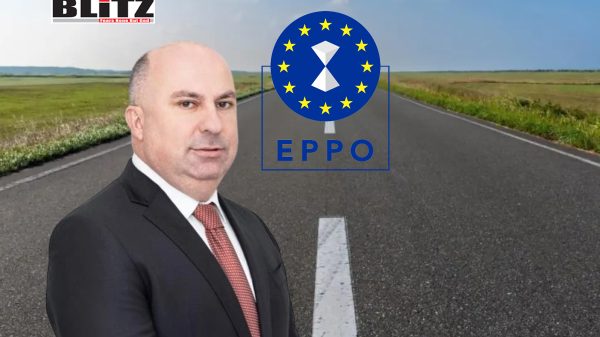Albanian cocaine trafficking network dismantled in Europol-led international operation
- Update Time : Monday, August 18, 2025

An internationally active Albanian organized crime network has been dealt a major blow following a coordinated law enforcement crackdown that resulted in 10 arrests in early August 2025. The large-scale operation, executed between 7 and 8 August in Albania, marks another significant victory stemming from Europol’s continued exploitation of Sky ECC encrypted communication data.
The dismantled network was heavily engaged in multi-tone cocaine trafficking and sophisticated money laundering operations. Its reach extended far beyond Albania, establishing close ties with other high-risk, poly-criminal organizations across Europe and Latin America. The takedown highlights the increasingly global nature of organized crime and the critical importance of cross-border intelligence sharing and joint investigations.
Albanian authorities, working in close coordination with their counterparts from Belgium, France, Germany, Italy, and the Netherlands, launched a series of raids targeting clan-based criminal structures. The effort was spearheaded domestically by Albania’s Special Prosecution Office for Anti-corruption and Organized Crime (SPAK), the National Bureau of Investigation, and the Albanian State Police.
Europol played a central role, providing operational support, intelligence coordination, and on-the-ground expertise through the deployment of an organised crime specialist to Tirana. The coordinated strikes followed the arrest of a key figure within the network in June 2025, which further enabled authorities to piece together the group’s structure and modus operandi.
During the raids, law enforcement seized substantial assets linked to the criminal network, including a hotel, several properties, businesses, and a significant trove of both physical and digital evidence. These seizures not only disrupted the network’s financial base but also reinforced the strategy of targeting illicit profits to weaken organised crime groups.
At the heart of this investigation lies the Sky ECC encrypted communications platform, dismantled back in 2021 but still proving to be a treasure trove of intelligence for European law enforcement. Despite its shutdown more than four years ago, the sheer volume of data harvested from the platform continues to yield actionable insights into high-level criminal operations.
Investigators from Albania, Belgium, France, and the Netherlands worked alongside Europol analysts to comb through vast amounts of encrypted communication data. This enabled them to reconstruct a number of criminal episodes, including massive cocaine shipments trafficked from Latin America to major European ports such as Hamburg and Rotterdam.
One notable discovery revealed that in a single shipment, the network’s main target earned more than $40 million in profits. This not only underlined the staggering financial scale of the network’s activities but also illustrated the enormous resources available to sustain its operations.
The focus of the operation revolved around a top-tier Albanian criminal leader. He was responsible for coordinating major cocaine shipments and managing large-scale investments in narcotics. Operating from remote locations, he relied on encrypted communications to orchestrate his network’s activities across continents.
Prior to his recent arrest, the individual had already been a wanted man. An Albanian court had recognised a 21-year prison sentence handed down by an Italian court for a litany of serious crimes, including murder, deprivation of liberty, illegal possession of explosives, threats, obstruction of justice, and attempted concealment of a corpse.
His criminal organisation’s influence stretched far beyond Albania, as it collaborated with other international groups capable of facilitating smuggling routes into EU harbours. The organisation channelled its illicit profits, amounting to tens of millions of euros, into property and business acquisitions both in Albania and across Europe. This not only served as a mechanism for laundering illicit gains but also reinforced the network’s social and economic influence within local communities.
Europol’s involvement was instrumental in the success of the operation. The agency provided intelligence analysis, mapping out the network’s internal hierarchy and the roles of specific high-value targets. Multiple intelligence and analytical reports were distributed to national partners throughout the investigation, while operational meetings ensured real-time coordination between participating states.
On the action days in Albania, Europol deployed a mobile office and facilitated communication between international agencies, underscoring its role as a hub for collaborative law enforcement operations. This demonstrates how Europol continues to serve as a crucial backbone in the fight against transnational organised crime.
The Albanian network under investigation exemplifies the truly global scope of modern organised crime. By partnering with other poly-criminal groups, it ensured the smooth passage of cocaine shipments from Latin America to Europe’s key entry points. Once in Europe, the organisation integrated its operations into a broader criminal ecosystem, engaging in both trafficking and money laundering.
With the proceeds reaching astronomical figures, the network invested heavily in the Albanian economy and beyond. This strategy mirrors a growing trend among criminal enterprises that not only seek profit but also aim to entrench themselves within legitimate economies. By acquiring hotels, real estate, and businesses, they both laundered illicit funds and gained a foothold in sectors where their influence could go unchecked.
The operation brought together an impressive coalition of law enforcement agencies from across Europe. Key players included:
- Albania: SPAK, the National Bureau of Investigation, and the Albanian State Police.
- Belgium: Federal Judicial Police.
- France: National Police.
- Germany: Federal Criminal Police Office (Bundeskriminalamt) and State Criminal Police Office Baden-Württemberg.
- Netherlands: Dutch National Police.
- Italy: National Police and Servizio per la Cooperazione Internazionale di Polizia.
The joint action illustrates the level of commitment required to tackle crime syndicates operating across borders and jurisdictions.
The August 2025 takedown of this Albanian criminal organization represents a significant step forward in Europe’s ongoing battle against cocaine trafficking and transnational organized crime. While the dismantling of networks of this magnitude sends a strong message, law enforcement officials acknowledge that such groups are adaptive, resilient, and capable of regeneration.
The operation also reaffirms the long-term value of intelligence-led policing and international cooperation. The Sky ECC data, despite being obtained years ago, continues to enable authorities to dismantle networks once thought untouchable. As law enforcement agencies look ahead, the lessons learned from this operation will remain vital in the evolving fight against organised crime.











